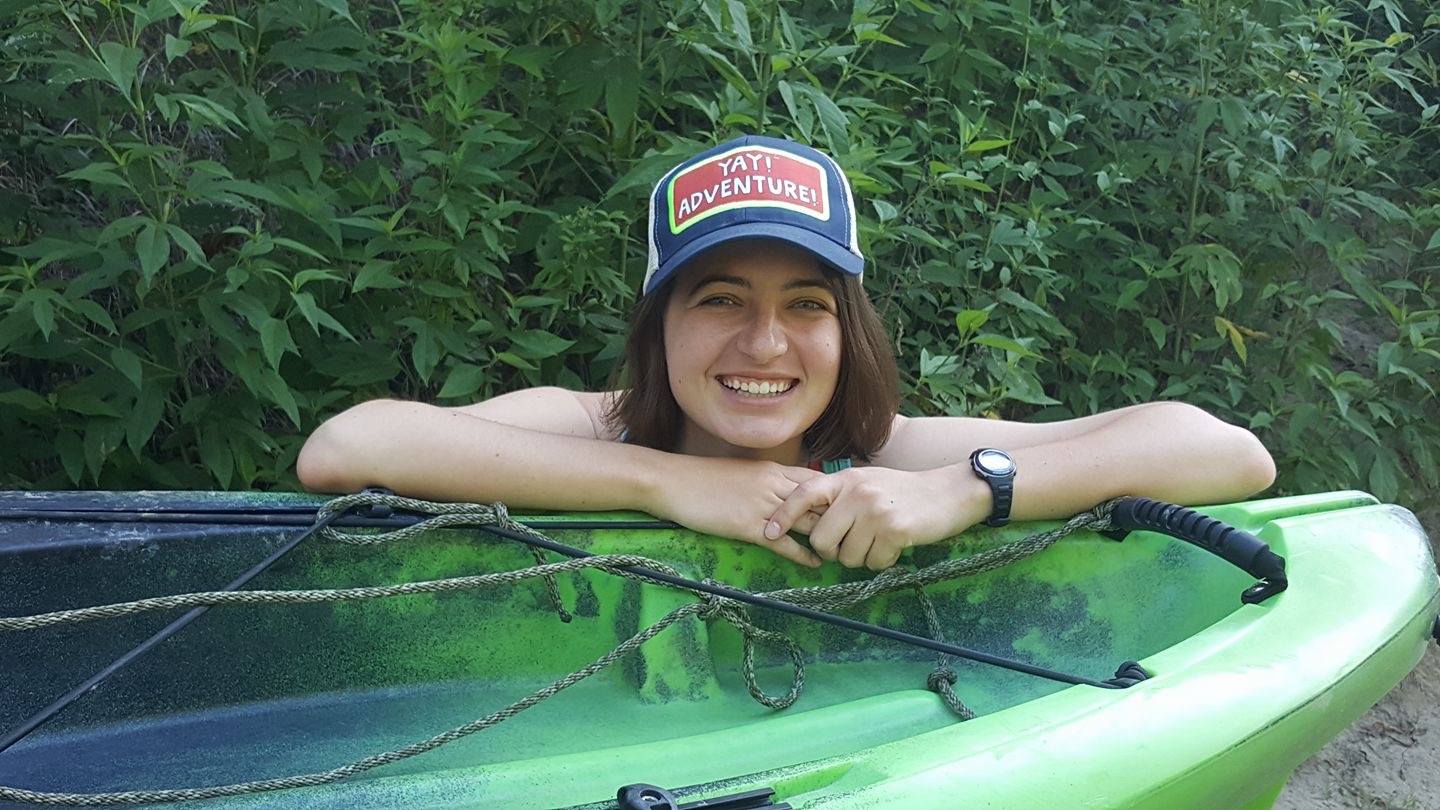 Meet Taylor Gold Quiros, a PhD student in Systems Ecology at the University of Montana and a member of the EPSCoR Track 1 research team. In this interview, Taylor shared information about her work, studies and career pathway with the Montana Girls STEM Collaborative, an outreach program of Montana NSF EPSCoR. Her interview is reprinted here in order to share career pathways with young people in Montana.
Meet Taylor Gold Quiros, a PhD student in Systems Ecology at the University of Montana and a member of the EPSCoR Track 1 research team. In this interview, Taylor shared information about her work, studies and career pathway with the Montana Girls STEM Collaborative, an outreach program of Montana NSF EPSCoR. Her interview is reprinted here in order to share career pathways with young people in Montana.
Where did you grow up?
I grew up in Seguin, Texas on the banks of the Guadalupe River.
What do you do for your job?
As a graduate student, I both take and teach classes, but my primary job is research. My research question is:
How are fish communities on the Upper Clark Fork River, MT impacted by stressors such as heavy metal contamination, low flow, nutrient enrichment, and habitat limitations?
To answer this question, I first need to figure out the impact of the major stressors on the river- this means I need measures of metal contamination, river flow, and nutrients at sites spread along the river using remote sensors and water samples. Habitat stress requires on-site studies, which include measurements such as bank vegetation, in-river cover, and riverbed composition. These data give me an idea of the quantity and quality of habitat available for fish throughout the river.
Secondly, I need to know what is going on in the fish community along the river. This sampling includes measuring fish populations and community composition as well as creating a food web (or map of species interactions) for each of my sites. Using these food webs, I will be able to see how energy and contaminants (like the heavy metals) move from organism to organism at different points in the river.
What did you like to do as a young person? At what age and how did you know you wanted to be a scientist?
I have always been curious and my activities when I was younger reflected this - I read countless books and jumped into literally any water body I could find (apparently it drove my parents crazy). I knew as a kid that I loved being outside and hoped that maybe someday I could find a job that would incorporate nature into my day-to-day life, but it wasn't until college, when I interned at the San Antonio River Authority, that I realized that I could become an aquatic biologist. It was like a puzzle piece falling into place-I knew immediately that this was the job I had been searching for.
Who were some of the role models, mentors or other adults who influenced you as a young person?
My parents have always been incredibly encouraging and have always pushed me to do my best. My siblings and I grew up hearing the phrase "find where your passion meets the needs of the world", which was hugely influential. The world needs people to care about nature, particularly freshwater, and I was made to be one of those people.
In college I met my first female scientist, Dr. Kelly Lyons, who sparked a revolution in my mind of who I could become. I also saw people like Jane Goodall, Tyron Hayes, and Neil DeGrasse Tyson speak to the public about science and understood that this too was something I felt passionate about- sharing the importance of science and what it can teach us in a way that includes everyone.
What advice would you give to a Montana kid who is interested in a career like yours?
We need people to care, truly, deeply, wonderfully care, about nature. We need you. It's not always an easy path, and you will have to put yourself out there and challenge yourself in major ways.
Ask yourself, "What would I do if I wasn't afraid? Who do I want to become?" and let those answers guide you. There are going to be people who shut you down or tell you that you are not good enough. They do not matter. What is important is your belief in yourself and your path.
Remember, the world needs you and your passion.